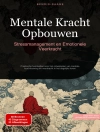This book illustrates the role of researchers’ affects and emotions in understanding and making sense of the phenomena they study during ethnographic fieldwork. Whatever methods ethnographers apply during field research, however close they get to their informants and no matter how involved or detached they feel, fieldwork pushes them to constantly negotiate and reflect their subjectivities and positionalities in relation to the persons, communities, spaces and phenomena they study.
The book highlights the idea that ethnographic fieldwork is based on the attempt of communication, mutual understanding, and perspective-taking on behalf of and together with those studied. With regard to the institutionally silenced, yet informally emphasized necessity of ethnographers’ emotional immersion into the local worlds they research (defined as “emic perspective, ” “narrating through the eyes of the Other, ” “seeing the world from the informants’ point of view, ” etc.), this book pursues the disentanglement of affect-related disciplinary conventions by means of transparent, vivid and systematic case studies and their methodological discussion. The book provides nineteen case studies on the relationship between methodology, intersubjectivity, and emotion in qualitative and ethnographic research, and includes six section introductions to the pivotal issues of role conflict, reciprocity, intimacy and care, illness and dying, failing and attuning, and emotion regimes in fieldwork and ethnography.
Affective Dimensions of Fieldwork and Ethnography is a must-have resource for post-graduate students and researchers across the disciplines of social and cultural anthropology, medical anthropology, psychological anthropology, cultural psychology, critical theory, cultural phenomenology, and cultural sociology.Table des matières
Affective Dimensions of Fieldwork and Ethnography – Advancing Affective Scholarship.- Part I: Role Conflicts and Aftermaths.- Role Conflicts and Aftermaths – Introduction.- Making Sense of (Humanitarian) Emotions in Ethnography with Vulnerable Childhood: The Case of Bangkok Slum Children.- Emotional Vulnerability and Ethnographic Understanding: A Collaborative Research Project in a Women’s Shelter.- Conflicted Emotions: Learning about Uchawi.- Part II: Reciprocity in Research Relationships.- Reciprocity in Research Relationships – Introduction.- Uneasy Thankfulness and the Dilemma of Balancing Partiality in Surrogacy Research.- Exchange of Intangible Gifts? Reflections on Research Relationships When ‘Studying up’.- Reciprocity in Research Relationships: Learning from Imbalances.- Reciprocity Reconsidered: Towards a Research Ethic of Economic Participation.- Part III: Intimacy and Care in the Field.- Intimacy and Care in the Field – Introduction.- Embodying Ineffable Concepts: Empathic Intimacy as a Tool for Insight.- Sexuality and Emotions Situated in Time and Space.- ‘Normality’ Revisited – Fieldwork and Family.- Part IV: Dealing with Illness and Dying.- Dealing with Illness and Dying – Introduction.- Standing at the Doorstep: Affective Encounters in Research on Death and Dying.- Dancing Through the Perfect Storm: Encountering Illness and Death in the Field and Beyond.- From Therapy to Fieldwork: Reflecting the Experiences of a Therapist and Anthropologist when Researching Substitutional Drugs And Their Users.- Part V: Failing and Attuning in the Field.- Failing and Attuning in the Field – Introduction.- How to be a Good Disciple (to a Martial Arts Master) – Critical Reflections on Participation and Apprenticeship in Indonesian Pencak Silat Schools.- The Anxieties of a Changing Sense of Place: A Reflection on Field Encounters at Home.- Attuning Engagement: Methodological and Affective Dimensions of a Failed Collaborative Research Project in Timor-Leste.- Part VI: Unpacking Emotion Regimes in Teaching and Fieldwork.- Unpacking Emotion Regimes in Teaching and Fieldwork – Introduction.- Vulnerability in the Field: Emotions, Experiences and Encounters with Ghosts and Spirits.- ‘How did it feel for you?’ Teaching and Learning (by) Emotional Reflexivity in an Undergraduate Fieldwork Training.- Fieldwork Emotions: Embedded Across Cultures, Shared, Repressed or Subconscious.- Afterword: A return to the story.
A propos de l’auteur
Thomas Stodulka is Junior Professor at the Institute of Social and Cultural Anthropology, Freie Universität Berlin. His work focuses on the interplay between affect, emotion, mental health, stigmatization, childhood, and critical epistemologies. He conducted long-term fieldwork with street-related young men in Yogyakarta, Indonesia between 2001 and 2015, and he has directed international research projects on the role of affect and emotion in fieldwork and ethnography, envy in transcultural perspectives, and critical perspectives on interdisciplinary emotion research and big data. Besides publishing various books, scholarly articles and blogs on these topics, he is the co-founder and co-convenor of the European Network for Psychological Anthropology (ENPA) at the European Association of Social Anthropologists.
Samia Dinkelaker was Volkswagen Stiftung Research Fellow in the project “The researchers’ affects” at the Institute of Social and Cultural Anthropology at Freie Universität Berlin. She is a Ph D candidate at the Institute for Migration Research and Intercultural Studies at Osnabrück University and studies Indonesian brokerage of migrant domestic workers to Hong Kong. Currently she is working as a researcher in the project “Welcome Culture and Democracy in Germany – Supporting refugee women*” at University of Osnabrück. Her research interests include global migration studies, migration, care and violence, feminist and postcolonial perspectives on subject formation as well as political affects.
Ferdiansyah Thajib is a Phd Candidate at the Institute for Social and Cultural Anthropology, Freie Universität Berlin. He is also an Associate Scholar at “The Researchers’ Affects” working group. Since 2007, Thajib is a member of KUNCI Cultural Studies Center, Yogyakarta Indonesia. KUNCI is a research collective which focuses on critical knowledge production and sharing through cross-disciplinary encounter, action-research and vernacular education with and across community spaces. His life work is situated in the intersections of theory and praxis, with specific research interests on queer modes of endurance and forms of affective entanglement in everyday life.












